By Ahmed Rouaba – BBC News – Published 10 October 2020.
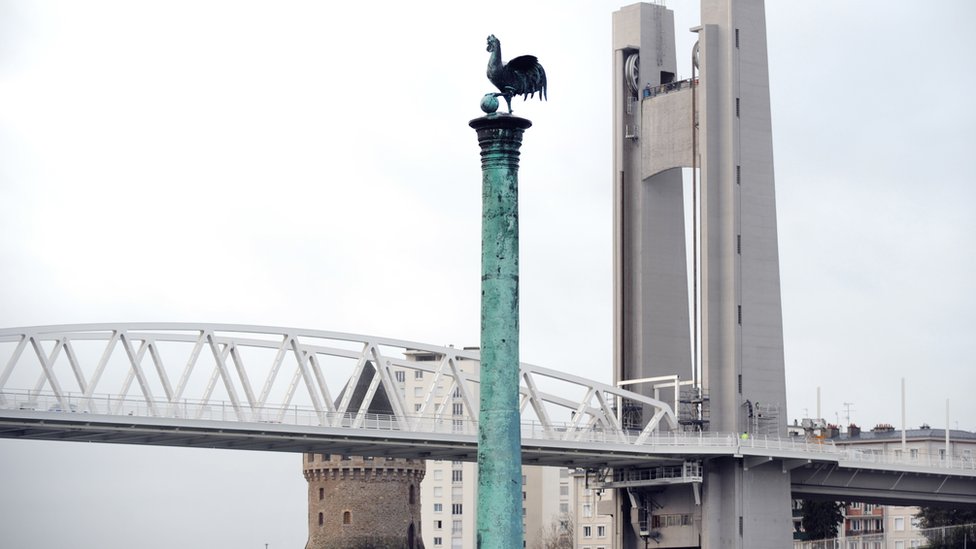
Algerians are hoping that a mighty bronze cannon stolen by the French nearly two centuries ago may be on its way home as part of an attempt by France to right the wrongs of its colonial past.
Built in 1542, even by today’s standards it is a gigantic weapon and was regarded for centuries as the guardian of Algiers.
To Algerians it is known as Baba Merzoug, meaning “Blessed Father”, as it protected the city, now Algeria’s capital, from countless invasions over the years.
Weighing 12 tonnes, its 7m- (22ft) long barrel pointed out towards the Mediterranean where it could fire 80kg (176lb) projectiles over a distance of 5km (three miles) towards invading ships.
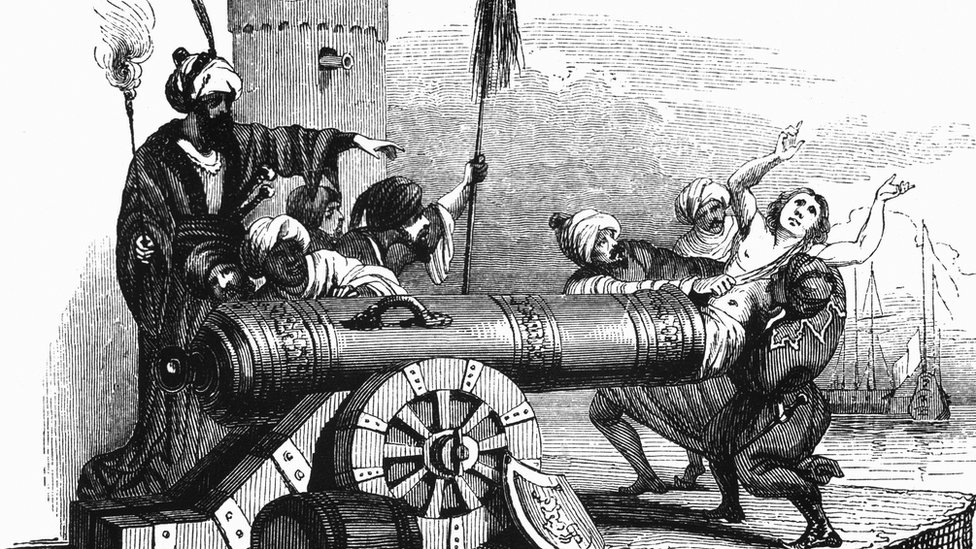
Indeed in 1683 the French consul at the time – Jean le Vacher – was shoved into the cannon and blasted from it during a failed attempt by the French navy to take the city.
To this day French military officers call the weapon “La Consulaire” after that ignominious incident.
When the French finally captured the city in 1830 – on their third attempt – they decided to remove the cannon to where it could do them no more damage.
Today it points towards the sky at a naval base in the north-western French port of Brest.
The symbolism is not lost on Algerians – and they want the weapon returned as part of a symbolic détente in relations between the two countries”

Its mouth has been sealed and atop stands the proud statue of a Gallic Cockerel, one of the emblems of the French nation.
The symbolism is not lost on Algerians – and they want the weapon returned as part of a symbolic détente in relations between the two countries.
Skulls returned
Algeria gained independence from France in 1962 after a bloody seven-year war, which left a long shadow in both countries.
Their rapprochement has been slow – but has made significant progress since Emmanuel Macron became France’s president.
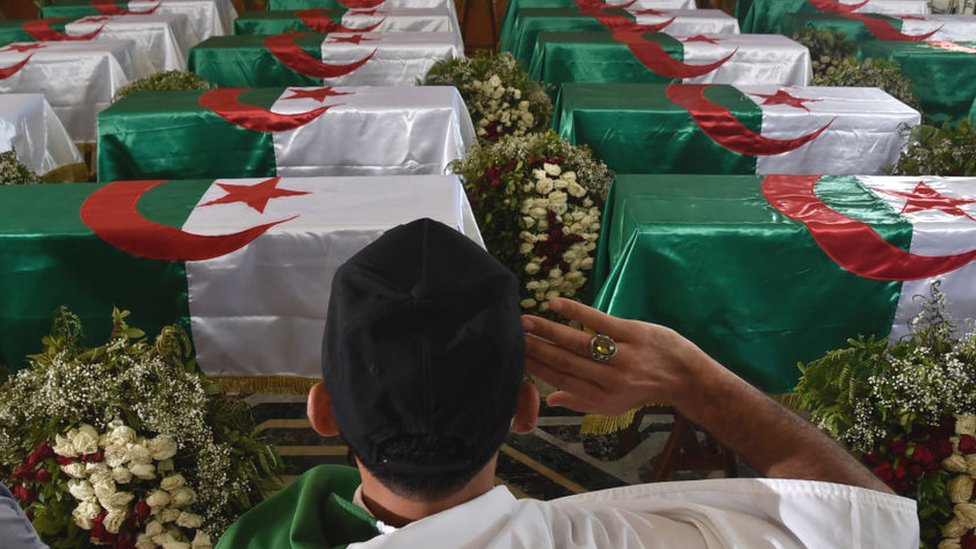
A few months before his election in 2017, he described the colonisation of the North African country as a “crime against humanity” on a visit to Algeria.
And earlier this year, France returned the remains of 24 Algerian fighters who were killed resisting French colonial forces in the 19th Century.
They had been taken to France as trophies and some of their skulls were later put on display at the National Museum of Natural History in Paris.
The man who made it his mission to make sure Algerians did not forget about the cannon was historian Belkacem Babaci.
He campaigned on the issue from the 1990s, but sadly will not get to see the cannon’s return as he died last year.
In 2011 he was allowed to visit it in Brest and told the Algerian newspaper El Moudjahid what made the cannon so special for him.


“Since I was 12 my grandfather told me stories of a legendary cannon. These stories inspired me to conduct research and study history,” he said.
“When I touched the cannon, I felt moisture on my hands. In my imagination they were tears,” he said of his visit.
“Baba Merzoug takes us back to the age when Algeria was dominating the Mediterranean. This cannon tells about the real history of Algeria.”
‘One day you will be set free’
It was in fact Hassan Pasha, the Ottoman ruler of Algiers in the 16th Century, who commissioned the giant cannon in order to protect the city from repeated attacks by the Spanish, French and Dutch.
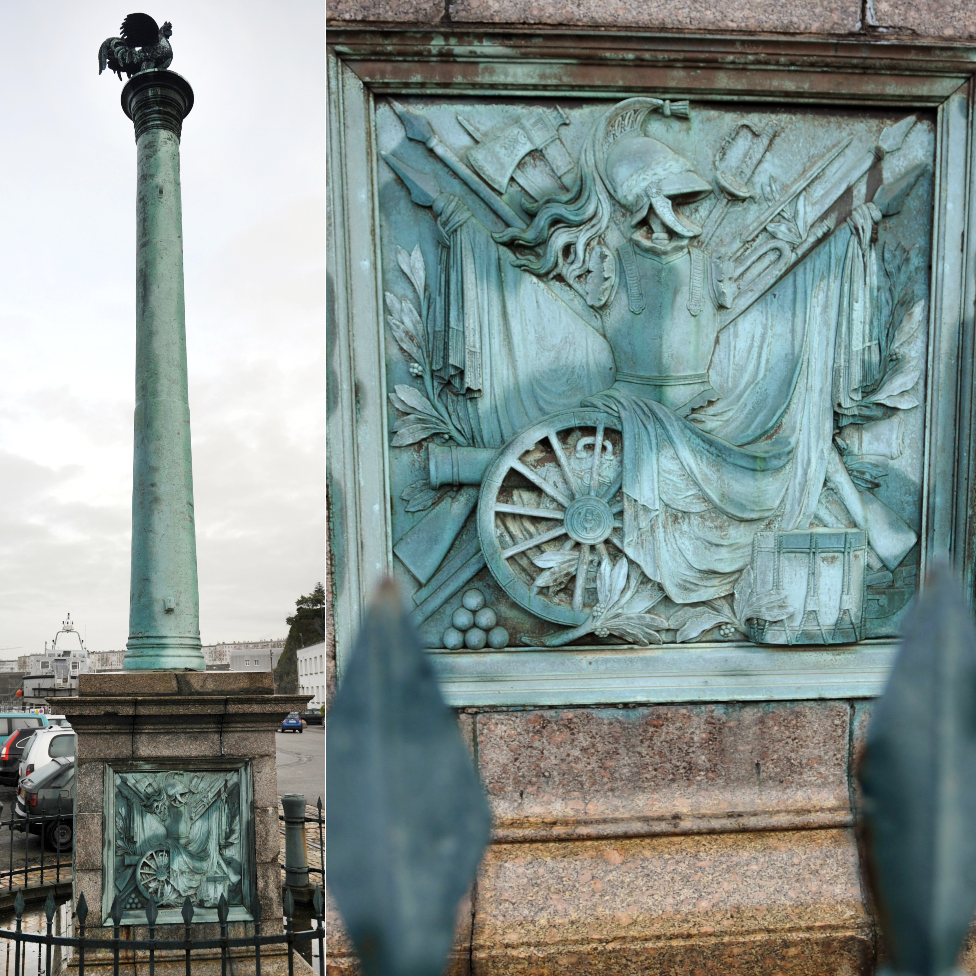

A ballistic missile of its day, it was built in a foundry in Bab El Oued, a suburb of Algiers, with the help a Venetian expert.
Thanks to Babaci’s efforts, the memory of the cannon is very much alive in popular culture.
In 2008 Ahmed Bouziane wrote a famous poem in the voice of the cannon, who is “alienated, lonely away from home”.
“I am here waiting for my destiny… captive in the hand of the French,” it says.
To this day popular traditional singer Abdelkader Chercham still performs an old favourite of his imagining a conversation with Baba Merzoug.
“I told him: ‘I see you captive alienated away from home.’ He told me: ‘My wish is to be back home.’ I told him: ‘No matter how long it takes, one day you will be set free,” his lyrics say.
Change in mood
As part of Babaci’s campaign, he wrote to Algerian and French officials on numerous occasions.

French-Algerian relations:
- 1830: France occupies Algiers
- 1945: Pro-independence demonstrations in Setif. Thousands killed in suppression of ensuing unrest
- 1954-1962: Algeria’s war of independence – estimates of those killed vary from between 400,000 and one million
- 1962: Algeria becomes independent state
- 2012: French President François Hollande acknowledges suffering caused by France’s colonisation of Algeria but stops short of an apology
- 2017: French presidential candidate Emmanuel Macron describes colonialism as “a crime against humanity” on a visit to Algeria
- 2018: As president, Mr Macron says France admits responsibility for the torture and killing of a communist activist in Algeria in 1957
- 2020: France returns the skulls of 24 fighters who were killed resisting colonial forces in the 19th Century
He said he had even received a positive reaction from Jacques Chirac, who was president of France from 1995 until 2007, yet over the years the position of the French military failed to budge.
In 2006 France’s then-Defence Minister Michèle Alliot-Marie again rejected the idea of returning the cannon, saying it was “part of the French military’s heritage” to which it was “very attached”.
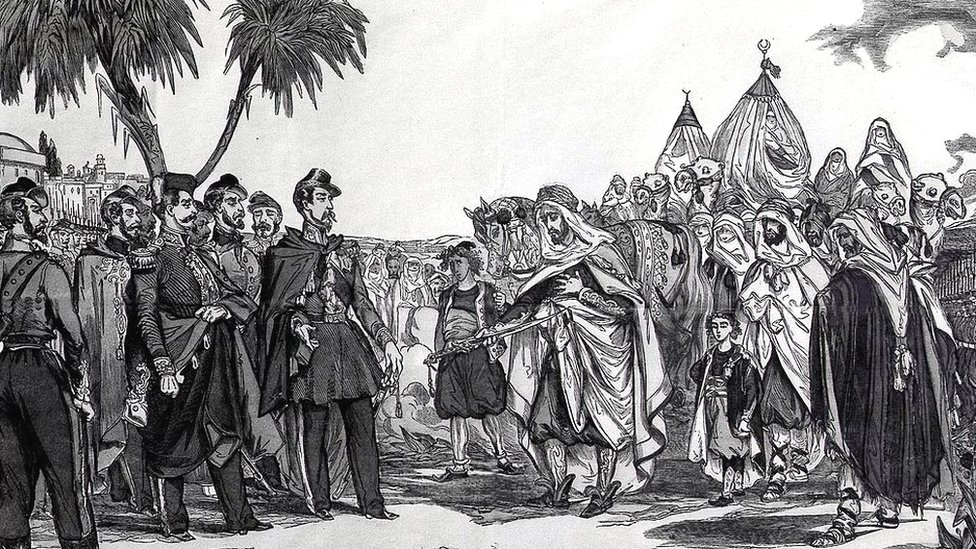
But now the head of the National Centre for Algerian Archives, Abdelmadjid Chikhi, and French historian Benjamin Stora, a specialist on the Algerian war of independence, are leading bilateral talks to resolve such issues.
Not long after this dialogue began last month, French MPs discussed returning to Algeria a hooded white garment worn by Emir Abdelkader, the man who led the struggle against the French invasion in 1830.
It is the “burnous” he wore after his surrender in 1847 – he was then held captive for five years – and is currently at the Army Museum in Paris.
This all points to a change of mood that may be the key needed to finally liberate the Algerian “prisoner of war” Baba Merzoug after 190 years.
Source: https://www.bbc.com/news/world-africa-54432571






1 comment
I think we need this canon back at least to re use it with the new ambassador.
The same causes produce the same effects.